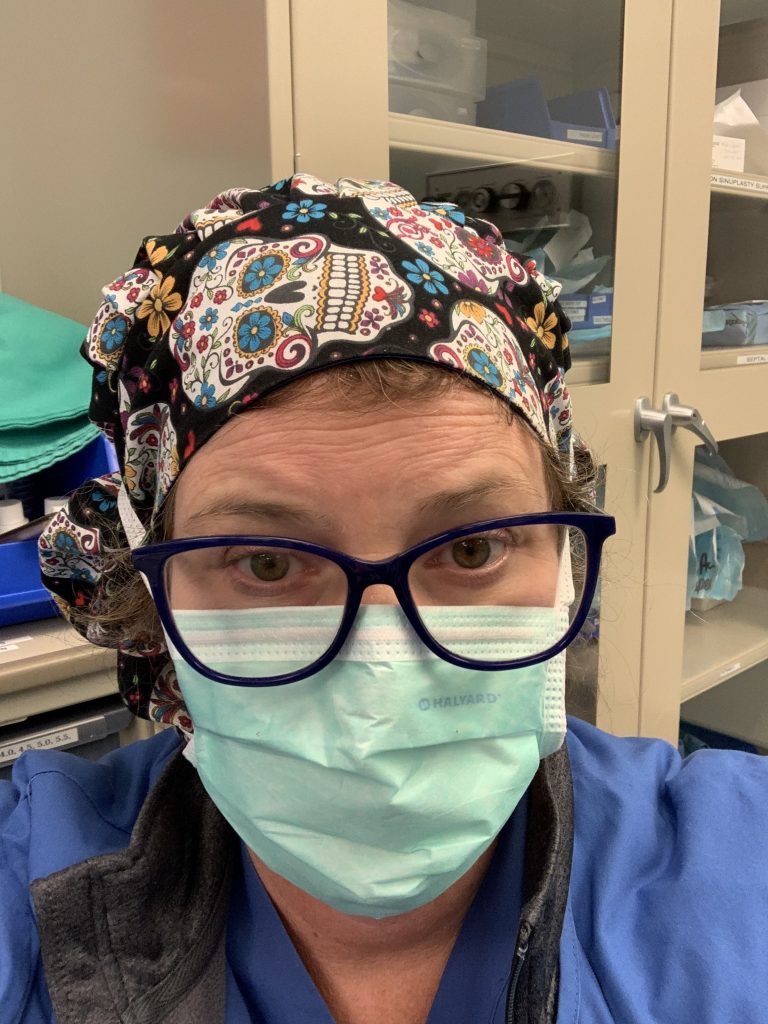
Julie Hughes
The health professional I chose to interview is Julie Hughes. Julie has been my mom’s best friend for over 30 years. They met in college when they were both working on a horse farm and she has been in my life for as long as I can remember.
Julie works as a CRNA (Certified Nurse Anesthetist) at Mary Washington Hospital of Fredericksburg VA. She works in the Ambulatory Surgery Center of the Hospital.
Before getting her CRNA, Julie was a 91B10 Army Combat Medic. After that she received her Bachelor of Science in Nursing (BSN) at the University of Chapel Hill (UNC). Then continued on to receive her Master of Science in Nursing also at UNC. Then finally moved to Wake Forest School of Anesthesia where she became a certified Registered Nurse Anesthesiologist, and has been working as one ever since.
Some things that inspired Julie to go into this field was that she likes to care for others, but because of her dominant personality she wanted a career with autonomy.
Her path to getting where she is now she says, a CRNA came to my undergraduate nursing class and spoke about the career and told them it was technical and scientific but also care giving and autonomous and she knew after hearing the woman speak that it was the career for her.
Some basic roles she is responsible for are planning that anesthetic for different surgeries and carrying out the task. She performs spinals which numb you from the waist down, epidurals (for laboring women), general anesthesia with an endotracheal tube, general anesthesia with a laryngeal mask airway, and sedation with an Oxygen Mask. She also performs peripheral nerve blocks to numb an extremity for surgery or postoperative pain control.
She says the most rewarding part is that she enjoys taking people’s pain away and helping them through a stressful trauma. She says she takes pride in knowing that if anesthesia wasn’t present the shock of surgery alone would kill someone.
She says the most surprising part of her job is believe it or not, she didn’t know she would be intubating people. Her first day in the operating room as a student she asked the teacher “I’m going to put that tube where?” She says the operating room is also fun and they listen to music and enjoy each other’s conversation while they work. Another surprising aspect she says is that when the surgeon is not working they are pressed to be as quick as possible to minimize wasted time so that sometimes can be very stressful for her.
The most challenging thing she says is that her career is a difficult intubation. Some peoples anatomy is very different then her own, some that their mouth doesn’t open wide enough or they had a recessed mandible and it is difficult sometimes impossible she says to see the glottis but, often you down know this until you have taken the patient’s breathing reflexes and sedative- hypnotic drugs and muscle relaxers.
Some advice she would give someone going into the health field would be start putting money in your retirement account right away. She says it’s hard to believe when you’re young and just starting but someday you will want to retire in style and the only way to get there is to save money and invest it, and to always believe that you can do it no matter what gets in the way or the route you have to take to get there.
Something I have learned from interviewing Julie is that never give up on yourself and do not be afraid to attack whatever wants to come your way. She knew what she wanted to do and she went after it no matter what she had to do, what classes she had to take, what school she had to attend, she went after what she wanted.